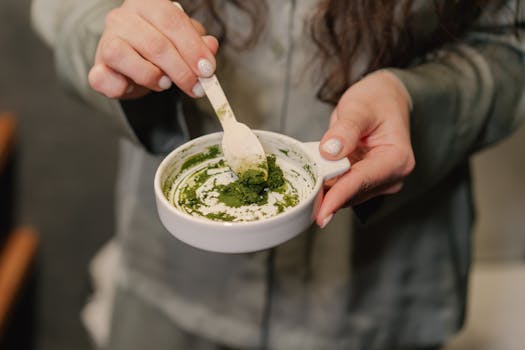Sugary Drinks
**Foods to Avoid During the Healing Process: Sugary Drinks**
During the healing process, it is crucial to nourish your body with foods that promote recovery and avoid those that may hinder it. Sugary drinks, unfortunately, fall into the latter category and should be avoided for several reasons.
Firstly, sugary drinks are high in calories and provide little nutritional value. They contain empty calories that can contribute to weight gain and inflammation, both of which can slow down the healing process. Additionally, the high sugar content can cause spikes in blood sugar levels, leading to fatigue and impaired immune function.
Secondly, sugary drinks can dehydrate the body. When you consume sugary drinks, your body draws water from its tissues to dilute the sugar. This can lead to dehydration, which can further delay healing and impair wound repair.
Thirdly, sugary drinks can interfere with the absorption of essential nutrients. The high sugar content in these drinks can bind to minerals such as calcium and iron, making them less available for absorption by the body. This can lead to deficiencies in these nutrients, which are crucial for healing.
Furthermore, sugary drinks can promote inflammation. The high sugar content in these drinks can trigger the release of inflammatory cytokines, which can damage tissues and slow down healing. Inflammation can also lead to pain, swelling, and discomfort, further hindering the recovery process.
In conclusion, sugary drinks are detrimental to the healing process. They provide empty calories, dehydrate the body, interfere with nutrient absorption, and promote inflammation. By avoiding sugary drinks and opting for healthier alternatives such as water, unsweetened tea, or fruit-infused water, you can support your body’s natural healing abilities and promote a faster and more effective recovery.
Processed Foods

**Foods to Avoid During the Healing Process: Processed Foods**
During the healing process, it is crucial to nourish your body with nutrient-rich foods that support recovery. However, certain foods can hinder the healing process and should be avoided. Processed foods are one such category that should be eliminated from your diet during this time.
Processed foods are typically high in unhealthy fats, sodium, and sugar. These ingredients can contribute to inflammation, which can slow down healing and exacerbate pain. Additionally, processed foods often contain artificial additives and preservatives that can further irritate the body.
One of the main culprits in processed foods is trans fats. These unhealthy fats have been linked to an increased risk of heart disease, stroke, and other chronic conditions. They can also interfere with the body’s ability to heal properly.
Another concern with processed foods is their high sodium content. Excessive sodium intake can lead to fluid retention, which can cause swelling and discomfort. This can be particularly problematic for individuals recovering from injuries or surgeries.
Furthermore, processed foods are often loaded with sugar. Sugar can spike blood sugar levels, leading to inflammation and impaired immune function. This can hinder the body’s ability to fight infection and promote healing.
In addition to these specific concerns, processed foods are generally low in nutrients. They provide little to no vitamins, minerals, or antioxidants that are essential for recovery. Instead, they fill you up with empty calories that do not contribute to your well-being.
Therefore, it is highly recommended to avoid processed foods during the healing process. Instead, focus on consuming whole, unprocessed foods such as fruits, vegetables, lean protein, and whole grains. These nutrient-rich foods will provide your body with the building blocks it needs to heal and recover effectively.
By eliminating processed foods from your diet, you can create an optimal environment for healing and promote a faster and more complete recovery.
Alcohol
**Foods to Avoid During the Healing Process: Alcohol**
During the healing process, it is crucial to be mindful of the foods and beverages that can hinder or promote recovery. Alcohol, in particular, should be avoided for several reasons.
Firstly, alcohol can interfere with the body’s natural healing mechanisms. It inhibits the production of white blood cells, which are essential for fighting infection and promoting tissue repair. Additionally, alcohol can dehydrate the body, leading to fatigue and impaired wound healing.
Secondly, alcohol can interact negatively with certain medications. For example, it can increase the effects of sedatives and pain relievers, potentially leading to overdosage. It can also interfere with the metabolism of antibiotics, reducing their effectiveness.
Thirdly, alcohol can exacerbate inflammation. It stimulates the release of inflammatory cytokines, which can worsen pain, swelling, and tissue damage. This is particularly detrimental during the healing process, as inflammation can delay recovery.
Furthermore, alcohol can interfere with sleep. It may initially induce drowsiness, but it can disrupt sleep patterns later in the night, leading to fatigue and impaired cognitive function. Adequate sleep is essential for the body to repair itself and recover from injury or illness.
In addition to these physiological effects, alcohol can also have psychological consequences that can hinder healing. It can lead to anxiety, depression, and impaired judgment, which can make it difficult to follow medical advice and adhere to treatment plans.
Therefore, it is strongly recommended to avoid alcohol during the healing process. By doing so, individuals can optimize their body’s ability to repair itself, reduce the risk of complications, and promote a faster and more effective recovery.
